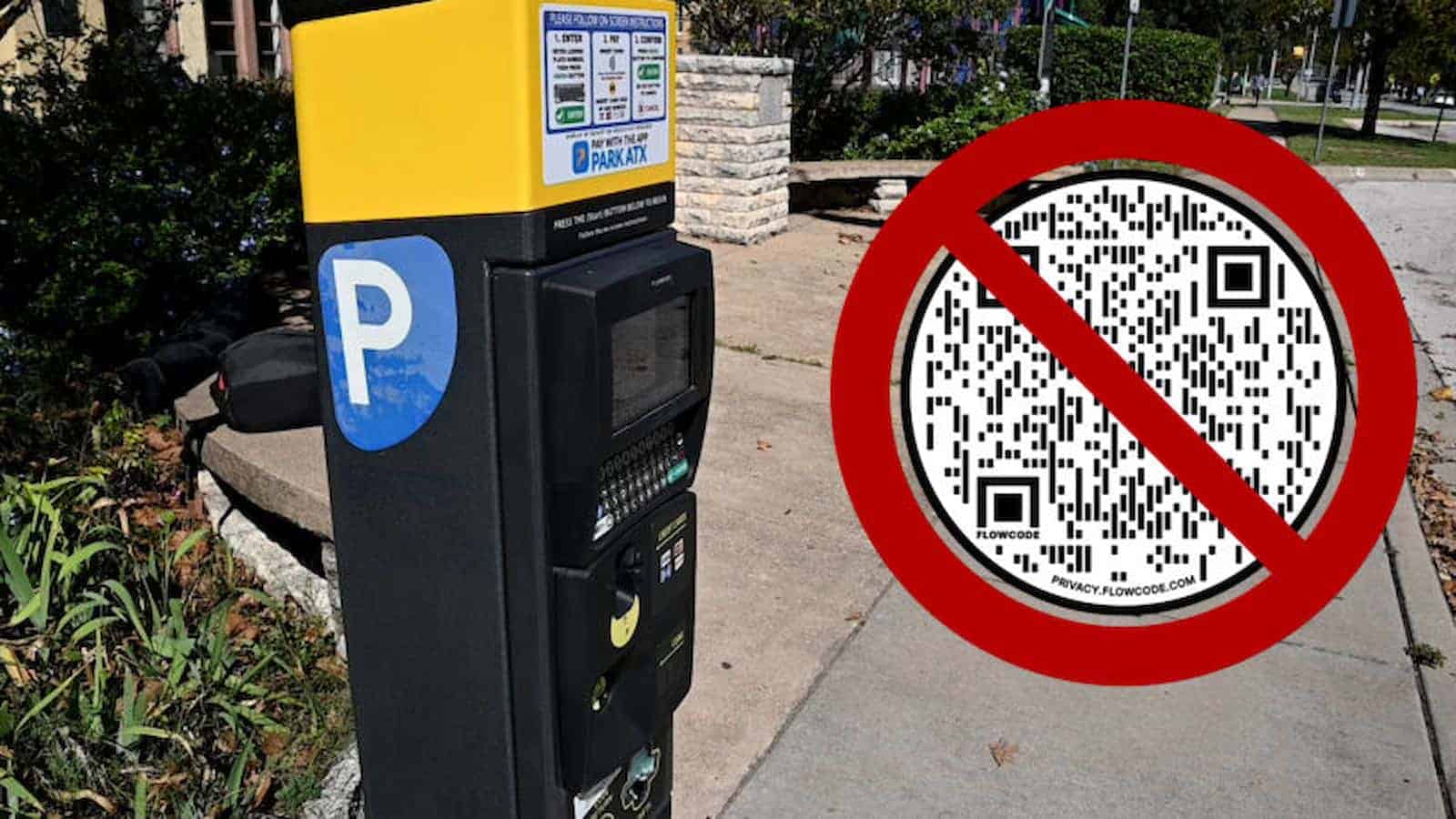News
Phony QR codes are being used by scammers to steal money from parking meters
The fraudulent QR codes were used in Austin, Houston, and San Antonio.

Just a heads up, if you buy something through our links, we may get a small share of the sale. It’s one of the ways we keep the lights on here. Click here for more.
Parking meters are a vital source of funds for local services, even if they’re commonly thought of as a scam. Some of them in Texas actually are being used to scam, however, after local authorities found fraudulent QR codes on some pay stations.
Residents in San Antonio, Austin, and Houston should be on the lookout for the QR codes, which appeared over the holiday period.
The QR codes go to fraudulent websites pretending to be the payment processor for the city’s parking meters. They ask for banking details for payment, which are then sent to whoever put the QR codes into action initially.
PSA: Austin doesn’t use QR codes because of how easy they are to fake
San Antonio police were the first to notice the rash of scammy QR codes, which appeared on over 100 parking pay stations.
The number of affected users is unknown at this time. If anyone thinks they were a victim of fraud because of this, they should file a police report and then contact their credit card issuer.
After San Antonio reported on the QR codes, Austin also checked the more than 900 pay stations around the city.
READ MORE: Are QR codes dangerous?
A total of 29 of them had QR codes that went to non-official payment sites, and have since been taken down. The “Quick Pay Parking” site found at passportlab.xyz is now offline.
Houston also found five QR codes on parking meters around the city and informed residents where they were. They also supposedly went to the same passportlab.xyz website.
ParkHouston wants to remind people that only coins, bills, or credit cards are accepted at its parking meters or payments through the official ParkHouston app.
We’ve only seen reports of fraudulent QR codes on parking meters in Texas so far, but this could happen anywhere in the world.
The QR (quick response) codes were created to hold data, with the most common being used to point to websites. The pandemic saw them gain in popularity, pointing to online menus, and even on digital vaccination records.
As always, be suspicious of anything that looks like a sticker added afterward on anything needing payment, or sketchy-looking websites asking for payment details.
Have any thoughts on this? Let us know down below in the comments or carry the discussion over to our Twitter or Facebook.
Editors’ Recommendations:
- All those QR codes you scan could actually be tracking you
- Jack Dorsey expresses mild Web3 cynicism, basically calling it a scam
- A hacker on Twitter says they took partial control of over 25 Tesla EVs
- GM is finally replacing Chevy Bolt batteries so they stop blowing up































